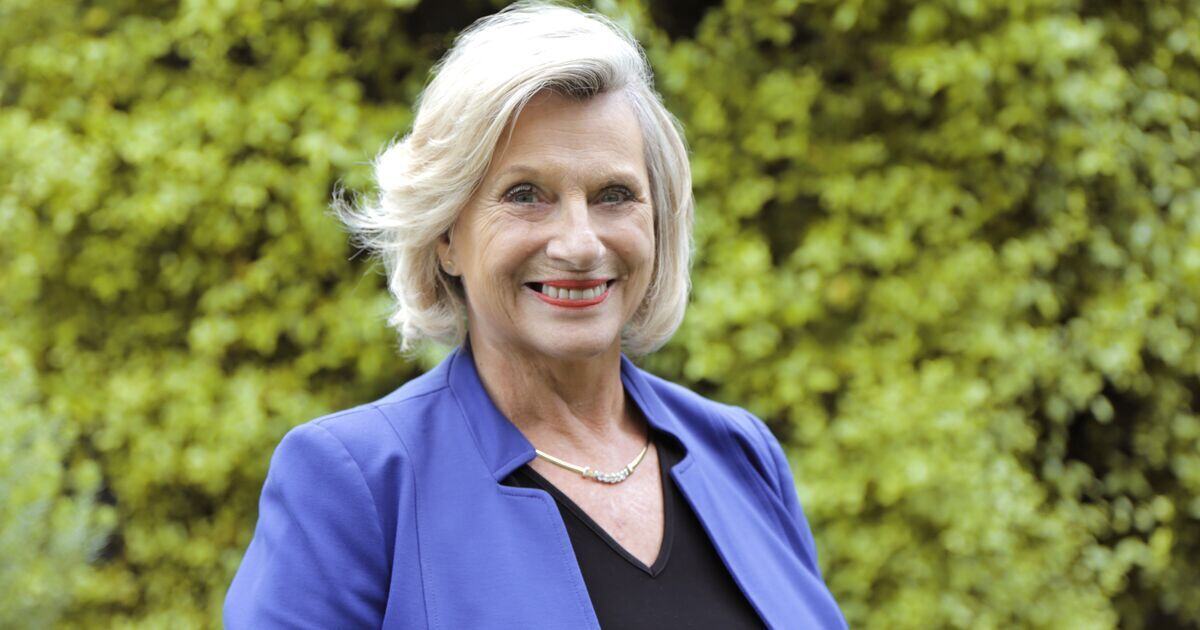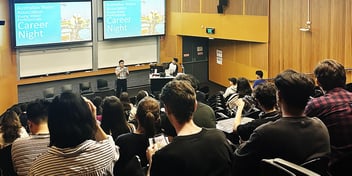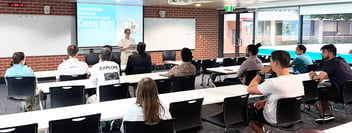Inspiring the future workforce: communicating the value of a career in water

Skill gaps could hinder progress on water security and climate adaptation, but the water community is up to meet the challenge according to one leading water executive who says it’s time to talk more about the value and vision of a career in the water industry.
Earlier this year, Robyn McLeod was recognised in the 2024 King’s Birthday Honours list, awarded the Member of the Order of Australia for her significant service to the community through social welfare and governance roles within the water and health sectors in Australia.
McLeod currently sits on the Board of Yarra Valley Water and CleanTeq Water Limited, and previously served as non-executive director for Melbourne Water, Monash Health and VicWater, all experience that has given McLeod keen insight into the value of careers in water.
When it comes to attracting and retaining the skills needed for the future water workforce, McLeod said the water sector has a number of key challenges, but none are insurmountable, and there’s much to be learned from transitions and challenges of the past.
“During the Millenium Drought, cities in southeast and western Australia came very close to significant drinking water shortages, necessitating water restrictions. This crisis created a burning platform – it got everybody's attention. And a new generation of young people got very excited and interested in becoming water professionals,” she said.
“Thankfully, we saw people come into the water community because they could recognise the vision of what safe, healthy drinking water and wastewater treatment could provide to our society. They saw the water industry as the stewards of one of our most essential services.”
McLeod said the Millenium Drought triggered a number of initiatives around Australia, including the implementation of desalination, recycling schemes and stormwater capture, as well as crucial regulatory, pricing and legislative reforms.
“There was a portfolio of tools the water community put in place, some involved capital, others relied on legislation, regulation and community education. There was no one silver bullet and these actions established the bedrock for adaptability in the future. This approach was very different to the way the water sector had traditionally worked,” she said.
“Traditionally, we built on 100-year cycles, we used 100-year modelling, and we relied on the incredibly strong foundations of the planners and engineers who built our systems, and gave us great water quality, sewer treatment and storm water systems. There was limited design thinking or diverse disciplines involved. Customer consultation, environmental stewardship, Indigenous water use, and recreational use were an add on.”
“This all changed with COAG reforms, the National Water Initiative, and then the devastating Millennium Drought. As a sector, we were successful in navigating that challenge.
“And most of those young people who were attracted to the challenge back then, like me, found an absolute passion for water and have stayed in the sector ever since.”
Fresh set of challenges
While water security problems are by no means solved – drought severity is expected to increase as the climate changes – McLeod said the skills gap facing the water sector is an issue that must be addressed if these issues are to be overcome in future.
“We have to face the challenge of vacancies in our workforce. We have skill gaps. We are often unable to fill important roles. Many of the skill sets we need have very attractive employment options within other industries,” she said.
“But it’s also about how we operate internally. If we want to attract young talent, we need to provide variety. We need to be able to move our people around into different areas of work, whether it be planning, sewer renewal, water quality, recycling or consumer engagement.
“Our management teams can no longer place a professional in a job and expect them to stay there for 40 years. People don’t want to work like that anymore. We need to be open to bringing in people from different disciplines.
“There are a whole bunch of different disciplines that can come into water that give employees variety. We don't necessarily have to be engineers to do some of these jobs. Don’t get me wrong, engineers are essential, but we need a mix. I am not an engineer, I come from a teaching background.”
Although the Australian water sector has made strides in the past two decades, McLeod said there is still a pressing need to become more adaptive, to accelerate, particularly in terms of meeting the hurdles of climate change.
“Traditionally, the water sector moves slowly. But we are now the canary in the coalmine, particularly in Australia – we are at the very pointy end of climate change. We are going to see massive changes in water flow and rainfall patterns,” she said.
“We need to spin fast. We have to be adaptive and we need a lot of tools to do that. This is one of the key challenges: getting people with a variety of skills, who will continue to see the industry as energising, who will carry the great vision for the most essential service in our society.
“Keeping that energy up in the workforce while we are being hit by climate challenges is going to be tough, but I believe we are up for the challenge. There are a lot of young people coming into the industry. I hope they stay long after I have hung up my gumboots.”
Attractive community
Bringing people into the water community will require communicating the value of the sector, McLeod said, which will require broadening the water community’s persona from one of technical excellence, to one that is also community and environment focused.
“Water is about health. In a sense, we are health workers. We are here to ensure our society has clean, safe drinking water, to ensure we maintain our sewer systems so people don’t get sick, to care for the health of the environment and our rivers, not only in support of biodiversity, but also our own mental health,” she said.
“We are also here to resource the self-determined health of Indigenous communities that, quite rightly, want to have access and rights to their water.
“Water has so many different uses, but we are fundamentally a health industry. And that’s what attracts people to us. And, as a sector, there can be more done to promote the sector as a place where altruism lives.”
McLeod said the Australian water sector is world leading and is being seen more and more as a place where people do great work.
“As leaders, we need to express this vision more to our workforce. It’s very important that we are out there talking to people about what our vision for the water sector actually is. We need to show how essential the service is and explain that it’s all about health,” she said.
“We also need to talk a lot more about water’s role in the circular economy. This is what our communities want – they want to see us recycling and not wasting resources. We are also an essential part of environmental stewardship.
“Often, our community doesn’t see that connection. But there are wonderful opportunities for young people in this industry, particularly those that are passionate about the environment.”
Another area of great opportunity for young people is in customer service, McLeod said: “If people have trouble paying bills, water authorities are the first to get the call, which means they are the first to filter issues such as financial abuse and domestic violence”.
“We are not only creating service through our pipes and water supply, we are also caring for our community. Many utilities now have specialised call centre employees to help deal with these kinds of vulnerable customers. We are a touch point for everybody,” she said.
Lasting legacy
Reflecting on her own journey through the national water sector, McLeod said that one of the most valuable aspects of a career in water are the incredible changes and lasting improvements that are available for people to participate in.
Some of McLeod’s previous positions include Independent Commissioner for Water Security for South Australia, National Director of Water at KPMG, Executive Director of Major Water Projects for the Department of Environment and Sustainability in Victoria, and Chief of Staff to the Victorian Minister for Energy Resources and Ports.
“I have been in and out of water since the 1980s, when I had my first touch of the Murray Darling Basin, dealing with the politics and issues around the basin,” she said.
“One of the highlights of my career was working as a Chief of Staff in the 1990s when Victoria, NSW and The Commonwealth corporatised the Snowy Hydro. It’s not every day you get the opportunity to help a river flow again.
“I was also Executive Director of Major Projects Water during the Millenium Drought for the Victorian Government. The focus and the decision making at the time around how to secure Melbourne’s water supply was monumental.
“The pinnacle for me was probably in South Australia as Water Commissioner. Water security was and still is the number one topic in SA. And I was so honoured to be able to make a difference through the water policy, Water for Good.
“We are able to do work in the water sector that has a lasting legacy. From a governance perspective, this work makes you jump out of bed in the morning, knowing that your work is making a big difference.”
McLeod said the water sector is a fascinating industry, one we should all be proud of, and it’s time to communicate the wonderful work on offer to attract innovative and courageous thinking.
“I love water. Everything about the water community and its essential place in keeping us all healthy as people and a planet has always been incredibly attractive to me,” she said.
“Be courageous. If there is an opportunity to join the water sector, take it. We need courageous people.”
Interested in learning more about careers in water? Take a look at AWA’s leading water careers platform here.


